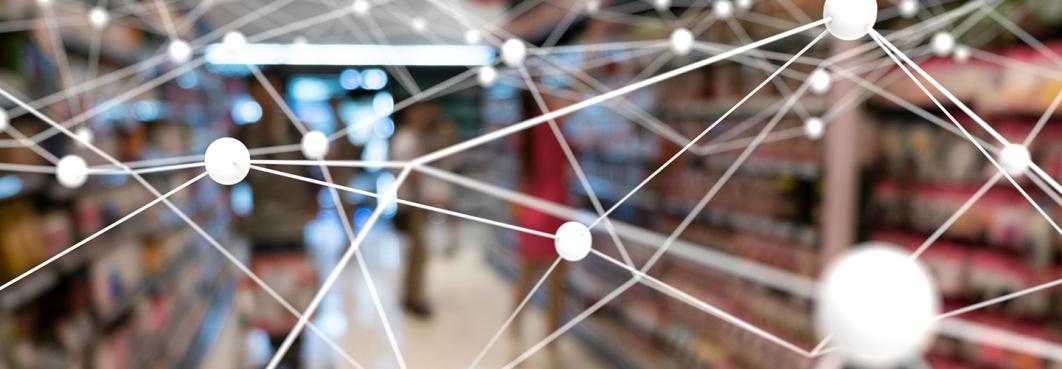Can AI Help Me Personalize the Customer Experience in My Restaurant?
In today's competitive restaurant industry, providing a personalized customer experience is crucial for success. Customers expect restaurants to understand their preferences, remember their past orders, and offer tailored recommendations. However, delivering personalized experiences can be challenging for restaurants, especially with the ever-increasing volume of customer data and the need for real-time interactions.

Artificial intelligence (AI) is emerging as a powerful tool that can help restaurants overcome these challenges and enhance customer personalization. AI-powered solutions can analyze vast amounts of data, identify customer patterns and preferences, and provide personalized recommendations and services in real time. In this article, we will explore the potential of AI in transforming customer personalization in the restaurant industry.
Understanding Customer Personalization
What Is Customer Personalization?
Customer personalization is the process of tailoring products, services, and marketing messages to the specific needs, preferences, and behaviors of individual customers. In the restaurant industry, personalization involves understanding customer preferences for food, ambiance, service style, and other factors, and using this information to create a unique and memorable dining experience for each customer.
Benefits Of Personalization
- Increased customer satisfaction: Personalized experiences make customers feel valued and appreciated, leading to higher satisfaction levels.
- Improved customer loyalty: Personalized experiences foster customer loyalty and encourage repeat visits.
- Increased revenue: Personalization can lead to increased revenue by upselling and cross-selling products and services that are tailored to customer preferences.
Real-Life Examples Of Personalization In Restaurants
- Starbucks: Starbucks uses a mobile app to collect customer data and provide personalized recommendations for drinks, food, and promotions.
- Domino's Pizza: Domino's Pizza uses AI-powered algorithms to predict customer preferences and offer personalized deals and discounts.
- McDonald's: McDonald's uses AI-driven kiosks that allow customers to customize their orders and receive personalized recommendations.
The Role Of AI In Customer Personalization
How AI Can Revolutionize Customer Personalization

AI has the potential to revolutionize customer personalization in restaurants by providing the following capabilities:
- Data analysis: AI algorithms can analyze vast amounts of customer data, including purchase history, preferences, demographics, and social media interactions, to identify patterns and insights.
- Predictive analytics: AI can use historical data to predict customer behavior and preferences, enabling restaurants to anticipate customer needs and provide personalized recommendations.
- Natural language processing: AI-powered natural language processing (NLP) can understand and respond to customer feedback, requests, and questions in a natural and conversational manner.
Ways To Integrate AI Into Restaurant Operations
- AI-powered recommendation systems: AI algorithms can analyze customer data to provide personalized recommendations for menu items, drinks, and promotions.
- AI-driven customer segmentation: AI can segment customers into different groups based on their preferences, behaviors, and demographics, enabling targeted marketing and promotions.
- AI-enabled chatbots and virtual assistants: AI-powered chatbots and virtual assistants can provide personalized customer service, answer questions, and assist with reservations and orders.
- AI-based loyalty programs: AI can be used to create personalized loyalty programs that offer tailored rewards and incentives based on customer preferences and spending patterns.
- AI-driven ambiance and atmosphere optimization: AI can analyze customer feedback and data to optimize the ambiance and atmosphere of the restaurant, creating a personalized dining experience for each customer.
AI Applications In Restaurant Personalization
Here are some specific examples of how AI is being used to personalize the customer experience in restaurants:
- AI-powered recommendation systems: AI algorithms analyze customer data to provide personalized menu suggestions. For example, a restaurant might recommend dishes that are similar to those the customer has ordered in the past or that are popular among customers with similar preferences.
- AI-driven customer segmentation: AI can segment customers into different groups based on their preferences, behaviors, and demographics. This allows restaurants to target marketing and promotions more effectively. For example, a restaurant might offer a discount on a particular dish to customers who have ordered it in the past or who are part of a loyalty program.
- AI-enabled chatbots and virtual assistants: AI-powered chatbots and virtual assistants can provide personalized customer service. They can answer questions about the menu, make reservations, and even take orders. This can help to improve the customer experience and reduce wait times.
- AI-based loyalty programs: AI can be used to create personalized loyalty programs that offer tailored rewards and incentives. For example, a restaurant might offer a free appetizer to customers who have visited the restaurant a certain number of times or who have spent a certain amount of money.
- AI-driven ambiance and atmosphere optimization: AI can analyze customer feedback and data to optimize the ambiance and atmosphere of the restaurant. This can include adjusting the lighting, music, and temperature to create a more personalized dining experience for each customer.
Challenges And Considerations
While AI has the potential to transform customer personalization in restaurants, there are also some challenges and considerations that need to be addressed:
- Data privacy and security: AI algorithms require access to large amounts of customer data. It is important to ensure that this data is collected and used in a responsible and ethical manner.
- The need for skilled personnel: AI systems require skilled personnel to manage and maintain them. Restaurants may need to invest in training and development to ensure that they have the necessary expertise.
- The cost of AI implementation and ongoing maintenance: AI systems can be expensive to implement and maintain. Restaurants need to carefully consider the cost-benefit analysis before investing in AI solutions.
- The risk of AI bias: AI algorithms can be biased if they are trained on data that is biased. This can lead to unfair or discriminatory outcomes for customers. It is important to ensure that AI systems are trained on unbiased data and that they are used in a responsible and ethical manner.
AI has the potential to transform customer personalization in the restaurant industry. By analyzing vast amounts of data, identifying customer patterns and preferences, and providing personalized recommendations and services, AI can help restaurants create unique and memorable dining experiences for each customer. However, it is important to address the challenges and considerations associated with AI implementation, such as data privacy and security, the need for skilled personnel, the cost of implementation and maintenance, and the risk of AI bias. By carefully planning and implementing AI solutions, restaurants can harness the power of AI to enhance customer personalization, improve customer satisfaction and loyalty, and drive business growth.
YesNo

Leave a Reply